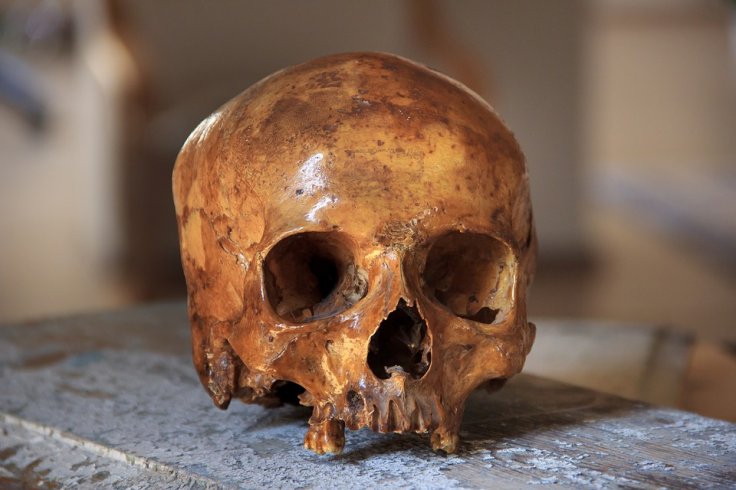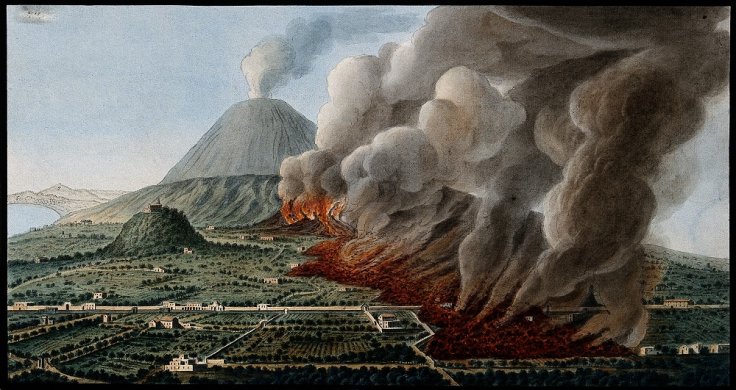Researchers found brain cells of a young man who died in devasting Mount Vesuvius volcanic eruption that happened in 79AD. As per the findings, the neurons have been discovered intact inside a unique black glass material inside the skull of the man that was previously his brain but vitrified by the eruption.
The researchers said that the heat from the volcanic eruption was so intense, and the cooling was so rapid, that it turned the victim's grey matter into a shiny glass-like material. The remains of the man were found in Herculaneum—a town close to Pompeii—in the 1960s but after so many years since the discovery, now scientists successfully analyzed it and noted that the cells belong to either the spinal cord or the cerebellum.

The Analysis
The study has confirmed the previous theory that the strange glass-like material was indeed a brain. The co-author of the study Pier Paulo Petrone of the University Federico II of Naples said that the finding of the brain tissue in a thousand of years old human remains "is an unusual event."
But what is extremely rare in this case is "the integral preservation of neuronal structures of a 2,000-years-ago central nervous system, in our case at an unprecedented resolution," the researcher said. He also added that the results of the bioanthropological and volcanological investigations going on at the Herculaneum "are gradually bringing to light details never before highlighted, which enrich the complex picture of events of the most famous of the Vesuvius eruptions."
The Unusual Transformation

As per the study, the team of experts who analyzed the remains of the Vesuvius victim, the cells were found intact as the remains were rapidly heated to around 520°C and then rapidly cooled.
The analysis also revealed that the man was in his mid-20s and was sleeping face down on a bed when he died. His remains were found in Herculaneum's Collegium Augustalium or the College of the Augustales.
With the help of electron microscopes, an extremely powerful form of observation tool, the researchers found conclusive results—550 to 830 nanometer-wide section of cells filled with carbon and oxygen which suggested that it was organic and therefore likely the brain of the ancient human.
The Vesuvius eruption instantly killed the inhabitants of Pompeii and Herculaneum. It buried an area 12 miles from the volcano in ash within a few hours. The team of researchers said that as per the wood around the site, the temperatures possibly have hit 968 degrees Fahrenheit when the volcano erupted.









